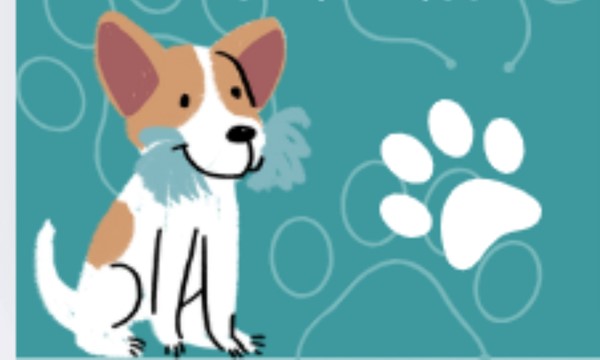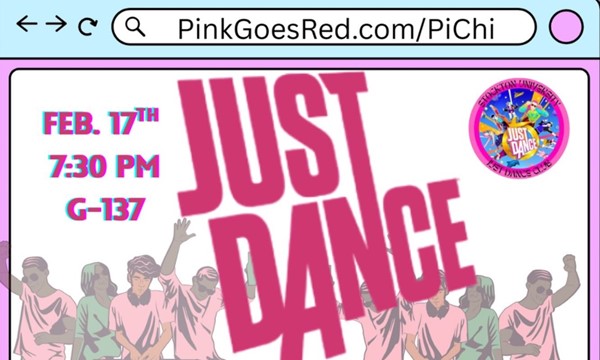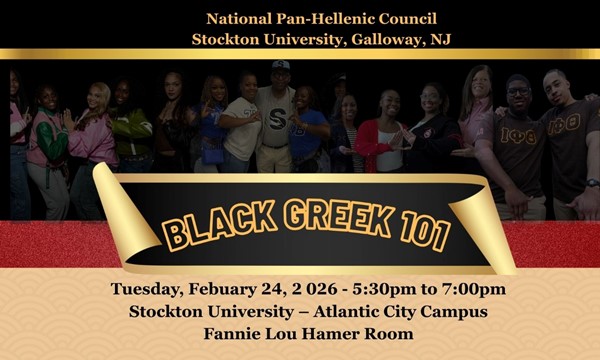Cultural Resources
Your guide to diversity, equity, inclusion, and social justice at Stockton.
Discover the Power of Cultural Clubs
These clubs connect directly to the mission of the Multicultural Center by creating supportive spaces where students can express their identities and learn from one another.
Find out which cultural club you can join and how joining can enrich your college experience, help you build meaningful relationships, and deepen your understanding of different cultures.
-
Flag Raising Ceremony Celebrates Latino Heritage and Culture
Monday, September 15th, 2025 -
Messages of Hope, Resilience on Display During Annual Flag Raising
Wednesday, February 5th, 2025 -
Club Connect: Meet the... Colombian Stockton Students Association
Friday, October 11th, 2024 -
Panel Discusses Hispanic Community's Challenges at Stockton
Tuesday, October 1st, 2024 -
Club Connect: Meet the... Guatemalan Student Association
Friday, September 27th, 2024
Diversity & Inclusion Resources
Workshops and Programming
Stories That Inspire Us: Read, Watch, Listen
- A trauma-informed lens for addressing race-based incidents on campus
- Center reports uses research to fight attacks on DEI
- First nationwide look at racial breakdowns of career education confirms deep divides
- More discussion than action: Racial justice on campus
- More than 9,000 anti-Asian incidents since pandemic began
- Racial equity work is everybody's work
- Racial gaps in college degrees are widening, just when states need them to narrow
- The five things no one will tell you about why colleges don't hire more faculty of color
- What is the origin of Black History Month?
- When they say you're "emotionally unstable": Racelighting advocates for racial justice
Diversity, Equity, Inclusion and Social Justice Vocabulary
| Term | Definition |
|---|---|
|
Ableism
|
The discrimination in favor of able-bodied people. “At its heart, ableism is rooted in the assumption that disabled people require ‘fixing’ and defines people by their disability. Like racism and sexism, ableism classifies entire groups of people as ‘less than,’ and includes harmful stereotypes, misconceptions, and generalizations of people with disabilities.” |
| Ageism |
Prejudice or discrimination on the grounds of a person's age. |
| Ally | Individuals who support groups other than one's own (can refer to race, gender, ethnicity, sexual orientation, etc.). Requires acknowledgement of oppression and an active commitment to reducing one's own complicity in oppressive systems and investment in the dismantling of the oppressive systems and the uplifiting of marginalized groups, voices and communities. |
| Bias |
A positive or negative inclination toward a person, group, or community; can lead to stereotyping. Bias can be conscious or unconscious and impact how we interact with others. |
| BIPOC |
BIPOC is an acronym used to refer to Black, Indigenous and people of color, and emphasizes the historic and ongoing systematic racism and oppression experienced by these racial and ethnic groups. |
| Cisgender |
A term that refers to an individual who identifies with their assigned gender at birth. |
| Climate |
Climate-related factors internal to and within the control of individual colleges and universities, such as history and legacy of inclusion or exclusion, compositional or structural diversity, psychological dimensions, behavioral dimensions, and diversity leadership. |
| Cultural Appropriation |
Cultural appropriation refers to the inappropriate/non-consensual use of cultural identifiers - such as clothing, symbols, language, art, customs, etc. - for commodification or profit purposes or without appropriate acknowledgement and respect for the value and symbolism that the identifier holds within the original culture. |
| Culture |
The shared customs, arts, and social institutions of particular people or other social groups. |
| Cultural Competence | The ability to effectively deliver education or services that meet the social, cultural, and linguistic needs of those being educated or served. |
| Cultural Intelligence (CQ) | Is a capability to work effectively across national, ethnic, and organizational cultures. Evidence-based strategies exist to help individuals and organizations enhance their (CQ) skills. |
| Decolonization | Decolonization is a process and movement based around the unlearning of values, beliefs and knowledge that directly relate to and stem from colonialism and settler-colonialism. It is aimed at honoring the natural roots of history and the movement to support indigenous sovereignty and history. |
| Disability | Disability is a term that refers to a wide spectrum of physical, mental and psychological impairments that affect a person's ability to participate in every-day life and restricts their ability to interact with the world around them. |
| Discrimination | The unjust or prejudicial treatment of various categories of people or things, especially on the grounds of race, age, or sex. |
| Diversity | The practice and mindset of including people from a variety of social backgrounds including race, ethnicity, sex, gender, sexual orientation, disability, etc. Factors can also include religion, socioeconomic status, education, physical appearance, etc. This term can encompass an engironment, ideas, persepectives, cultures and values. |
| Explicit Bias | Bias that is expressed directly, with awareness of the underlying prejudice of the biased expression, comment or behavior. |
| Gender Identity/Expression | A person's perception of having a gender, which may or may not correspond with their sex at birth. |
| Harassment | A form of employment discrimination that violates Title VII of the Civil Rights Act of 1964, the Age Discrimination in Employment Act of 1967, and the Americans with Disabilities Act of 1990. It is unwelcome conduct that is based on race, color, religion, sex (including pregnancy), national origin, age (40 or older), disability, or genetics. |
| Implicit Bias | Automatic associations and stereotypes associated with a given social group, identity or categorization. Can also be referred to as unconscious bias. |
| Institutional racism | Racial inequity within institutions and systems of power, such as places of employment, government agencies, and social services. It can take the form of unfair policies and practices, discriminatory treatment, and inequitable opportunities and outcomes. |
| Interpersonal racism | How our private beliefs about race become public when we interact with others. When we act upon our prejudices or unconscious bias—whether intentionally, visibly, verbally, or not—we engage in interpersonal racism. Interpersonal racism also can be willful and overt, taking the form of bigotry, hate speech, or racial violence. |
| Intersectionality | Coined by scholar Kimberle Crenshaw, as “the complex, cumulative way in which the effects of multiple forms of discrimination (such as racism, sexism, and classism) combine, overlap, or intersect especially in the experiences of marginalized individuals or groups.” |
| LGBTQIA2S+ | An acronym that stands for Lesbian, Gay, Transgender, Queer or Questioning, Intersex, Asexual or Agender, Two-Spirit. These terms are not synonymous, and the plus indicates there are many more sexuality and gender identities not included in this list. |
| Microaggressions | Manifestations of prejudice and hatred that are brief and/or subtle but great in the power or magnitude of their consequences. |
| Multiculturalism |
The presence of, or support for the presence of, several distinct cultural or ethnic groups within a society. |
| Multiracial |
A person identifying with two or more races as their primary identity. |
| Oppression |
Oppression refers to a systemic experience of social inequality due to the inherent and created structures of social institutions and social groups. Oppression encompassess institutional/systemic discrimination, personal biases, bigotry and social prejudism through social interactions and social strutures. |
| Person of Color | A person who does not identify as White/Caucasian. |
| Prejudice | Prejudice is a preconceived judgement or notion that often impacts one's impartial judgement and is often rooted in stereotypes or is otherwise unfactual, and marginalizes or ecludes individual members of various protected group identities. |
| Privilege | Privilege refers to the concept of exclusive access to material and immaterial resources based on membership to a dominant social group, or the exclusion of members of the dominant social group from negative experiences as a result of their belonging to certain groups. |
| Queer | A self-identifying label for individuals who do not comply with society's concepts of gender and/or sexuality. It is most appropriate to use either in reference to the self or within appropriate contexts. |
| Race | A socially constructed system of categorizing humans based on observable physical features (phenotypes) such as skin color and ancestry. There is no scientific basis for or discernible distinction between racial categories. The ideology of race has become embedded in our identities, institutions, and culture, and is used as a basis for discrimination and domination. The concept of racism is widely thought of as simply personal prejudice, but in fact, it is a complex system of racial hierarchies and inequities. |
| Racial justice |
The systematic fair treatment of people of all races that results in equitable opportunities and outcomes for everyone. All people can achieve their full potential in life, regardless of race, ethnicity, or the community in which they live. Racial justice—or racial equity—goes beyond “anti-racism.” It is not just about what we’re against, but also what we are for. A “racial justice” framework can move us from a reactive posture to a more powerful, proactive, and even preventive approach. |
| Racial microaggressions | Brief and commonplace verbal, behavioral, and environmental indignities, whether intentional or unintentional, that communicate hostile, derogatory, or negative racial slights and insults to the target person or group. These hostilities add up and are described as racial weathering and can have significant effects on the mental and physical health and well-being of individuals from marginalized groups. |
| Sexism | Is prejudice or discrimination, especially against women or girls, and today, against all genders. |
| Structural inequality | Refers to the design of systems in ways that disadvantage a social group in comparison to other social groups, which is rooted in discrimination, which are reinforced through institutions, ideologies, representations, policies, laws and practices. |
| Systematic equity | A complex combination of interrelated elements consciously designed to create, support, and sustain social justice. It is a robust system and dynamic process that reinforces and replicates equitable ideas, power, resources, strategies, conditions, habits, and outcomes. |
| Systems of oppression | Conscious and unconscious harassment, discrimination, exploitation, prejudice and other unequal treatment aimed at groups that are marginalized or oppressed. |
| Transgender | A term referring to an individual whose gender identity does not align with their assigned gender at birth. |
| White supremacy | A system and structuring of power that is maintained and reinforced by those who identify as White, either consciously or unconsciously, who benefit from the subjugation and oppression of people of color. |
List of References
- Center for Urban Education. (2020). Laying the groundwork: Concepts and activities for racial equity work. Rossier School of Education, University of Southern California.
- White, W. (2020). Diversity & Inclusion: Five essential leadership competencies of an effective D&I Practitioner. TalNet IncludeAll.












